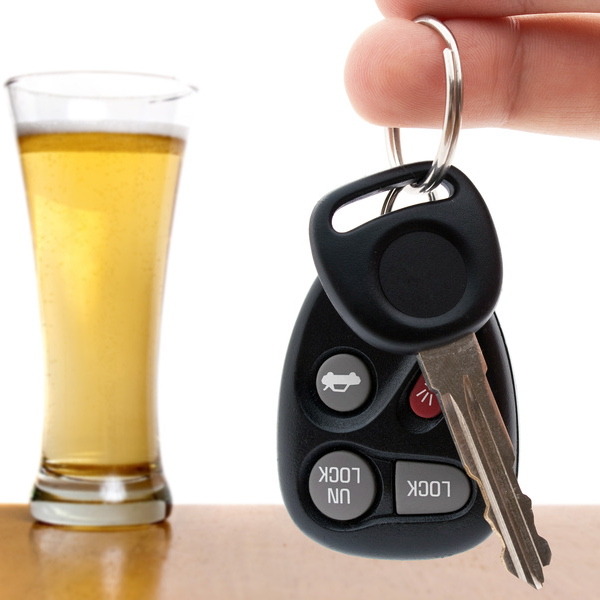 Maryland’s highest court recently released a potentially groundbreaking opinion by ruling that adults may be liable for the actions of underage drinkers whom they provided alcohol. The ruling stems from two cases involving auto accidents where intoxicated teenagers were the drivers. The plaintiff in the Baltimore County case was walking her dog when she was struck by an SUV driven by an 18-year-old that had been drinking at the home of the defendant. The defendant had allegedly provided mixed drinks to the teenaged driver, and made no effort to assure that the young man would not get behind the wheel that night. The other case stemmed from a tragic accident that occurred in Howard County back in 2009. The plaintiff is the family of a 17-year-old that was killed as he was the passenger in the flat bed of a pickup truck driven by his allegedly intoxicated friend. The lawsuit states that the driver had been drinking in the garage of the defendant’s home with full knowledge of the defendant.
Maryland’s highest court recently released a potentially groundbreaking opinion by ruling that adults may be liable for the actions of underage drinkers whom they provided alcohol. The ruling stems from two cases involving auto accidents where intoxicated teenagers were the drivers. The plaintiff in the Baltimore County case was walking her dog when she was struck by an SUV driven by an 18-year-old that had been drinking at the home of the defendant. The defendant had allegedly provided mixed drinks to the teenaged driver, and made no effort to assure that the young man would not get behind the wheel that night. The other case stemmed from a tragic accident that occurred in Howard County back in 2009. The plaintiff is the family of a 17-year-old that was killed as he was the passenger in the flat bed of a pickup truck driven by his allegedly intoxicated friend. The lawsuit states that the driver had been drinking in the garage of the defendant’s home with full knowledge of the defendant.
Both lawsuits target a third party that is claimed to be liable for damages caused by another individual, which in these cases are the two teenaged drivers. This theory of indirect third party “social host” liability is tough to prove and until now has never been recognized in Maryland. Upwards of 20 states have dram shop laws that allow liability of establishments arising from the sale of visibly intoxicated individuals that later cause injuries to another, but our state is not one of them. While this Court of Appeals ruling does not address dram shop, it will now pave the way for future civil actions against adults that furnish alcohol to minors. The court opined that young adults under the age of 21 are not competent to handle the potentially dangerous effects of alcohol, and are more susceptible to harming themselves or others when presented with the opportunity to drink in excess. According to the court some of the onus must fall on an adult that was present, and facilitated the conduct.
This appeals court ruling addresses civil liability, and it coincidentally comes at a time when the legislator has just expanded criminal liability for adults that furnish alcohol to minors. In May the governor approved a bill that will soon allow judges to incarcerate adults for up to one year if he or she provided alcohol to an underage drinker that subsequently injures or kills another person while driving a motor vehicle. This jail time provision was not present in the old statute, which under section 10-117 of the criminal code had a maximum punishment of a $2,500 fine for a first offense and $5,000 for a second offense. There will still be fines under the new law and the possibility of a misdemeanor criminal conviction, but jail time will only become a sentencing option in there is a serious bodily injury. Some lawmakers attempted to add a jail provision regardless of the minor causing an injury, though this version did not pass the General Assembly.
 Criminal Defense Lawyer Blog
Criminal Defense Lawyer Blog




 Drunk driving has become the most hotly debated and visible crime in the entire country. The amount of media attention and lobbyist money that is directed toward DUI education and prevention simply has no comparison. Sure, the war on drugs is trudging along, and sucking up millions of taxpayer dollars, but it targets dozens of substances, and not one single offense. Drunk driving stands alone for a variety of reasons including the fact that it is so common, and its defendants do not fall within a specific age or socioeconomic group. Teenagers, professionals, celebrities, cops, politicians etc. can be the defendants, and unfortunately the victims of this offense. All the media and lobbyist attention does not go unnoticed by lawmakers and state agencies, and as a result there are pages of laws and regulations governing DUI policy. The courts are charged with the task of interpreting each of these regulations, and this past week Maryland’s highest court released a lengthy opinion after being called upon to do just that.
Drunk driving has become the most hotly debated and visible crime in the entire country. The amount of media attention and lobbyist money that is directed toward DUI education and prevention simply has no comparison. Sure, the war on drugs is trudging along, and sucking up millions of taxpayer dollars, but it targets dozens of substances, and not one single offense. Drunk driving stands alone for a variety of reasons including the fact that it is so common, and its defendants do not fall within a specific age or socioeconomic group. Teenagers, professionals, celebrities, cops, politicians etc. can be the defendants, and unfortunately the victims of this offense. All the media and lobbyist attention does not go unnoticed by lawmakers and state agencies, and as a result there are pages of laws and regulations governing DUI policy. The courts are charged with the task of interpreting each of these regulations, and this past week Maryland’s highest court released a lengthy opinion after being called upon to do just that. The Blog has posted multiple articles about our state’s gun laws in the past few weeks as Maryland’s controversial gun laws just cannot seem to stay out of the news. This week was no different, with another headline courtesy of the United States Supreme Court. The Court recently announced that it would not hear argument on the statewide firearm carry permit law, which was upheld by U.S. Court of Appeals for the 4th District this past year. The challenge to the law began when a gun owner from Baltimore had his concealed carry application denied because he could not prove to the state that he had a “good and substantial reason” for the license. This was despite the fact that the man’s house had been burglarized multiple times. The gun owner filed suit in federal district court, and was joined by The Second Amendment foundation, an organization that opposes firearm restrictions. The district court judge agreed that the law was too restrictive and vague, and found it unconstitutional. But the victory was short lived for plaintiffs after the Appellate court reversed and held that the law could stand. Both parties were confident that the Supreme Court would settle the issue for good (and in their respective favor), but it wasn’t to be as the Court decided the 4th Circuit would have the final say.
The Blog has posted multiple articles about our state’s gun laws in the past few weeks as Maryland’s controversial gun laws just cannot seem to stay out of the news. This week was no different, with another headline courtesy of the United States Supreme Court. The Court recently announced that it would not hear argument on the statewide firearm carry permit law, which was upheld by U.S. Court of Appeals for the 4th District this past year. The challenge to the law began when a gun owner from Baltimore had his concealed carry application denied because he could not prove to the state that he had a “good and substantial reason” for the license. This was despite the fact that the man’s house had been burglarized multiple times. The gun owner filed suit in federal district court, and was joined by The Second Amendment foundation, an organization that opposes firearm restrictions. The district court judge agreed that the law was too restrictive and vague, and found it unconstitutional. But the victory was short lived for plaintiffs after the Appellate court reversed and held that the law could stand. Both parties were confident that the Supreme Court would settle the issue for good (and in their respective favor), but it wasn’t to be as the Court decided the 4th Circuit would have the final say. A little over a year ago, Federal District Court Judge Benson Everett Legg ruled that the “good and substantial” provision of the Maryland concealed carry gun law was unconstitutional. This provision required citizens to prove to the state Handgun Permit Unit that they had a good and substantial reason before being granted a concealed carry permit. When a Baltimore County man was denied one such permit, he filed suit in federal court, and the Second Amendment Foundation, which advocates for the preservation of the right to carry, joined in the lawsuit. Despite the Attorney General’s best efforts, Judge Legg concluded that the law was too broad to satisfy the state’s compelling interest to protect its citizens and prevent crime. According to the Judge the good and substantial provision did not safeguard the public from every handgun related hazard, and therefore did not do enough to justify a significant limitation on the constitutional right to bear arms. But just last week, a three-judge panel sitting for the U.S. Court of Appeals for the 4th Circuit unanimously disagreed with Judge Legg, and reversed his decision.
A little over a year ago, Federal District Court Judge Benson Everett Legg ruled that the “good and substantial” provision of the Maryland concealed carry gun law was unconstitutional. This provision required citizens to prove to the state Handgun Permit Unit that they had a good and substantial reason before being granted a concealed carry permit. When a Baltimore County man was denied one such permit, he filed suit in federal court, and the Second Amendment Foundation, which advocates for the preservation of the right to carry, joined in the lawsuit. Despite the Attorney General’s best efforts, Judge Legg concluded that the law was too broad to satisfy the state’s compelling interest to protect its citizens and prevent crime. According to the Judge the good and substantial provision did not safeguard the public from every handgun related hazard, and therefore did not do enough to justify a significant limitation on the constitutional right to bear arms. But just last week, a three-judge panel sitting for the U.S. Court of Appeals for the 4th Circuit unanimously disagreed with Judge Legg, and reversed his decision.